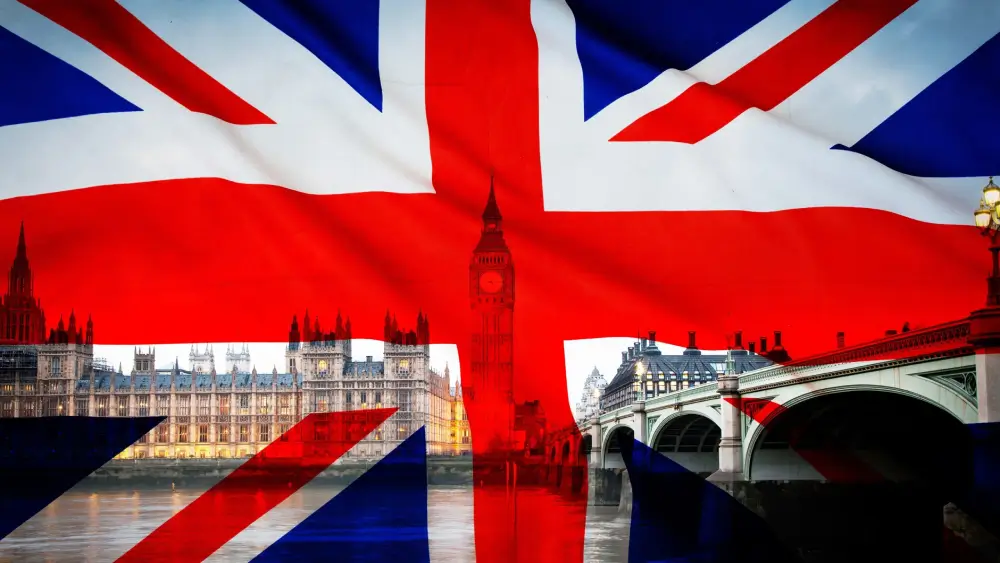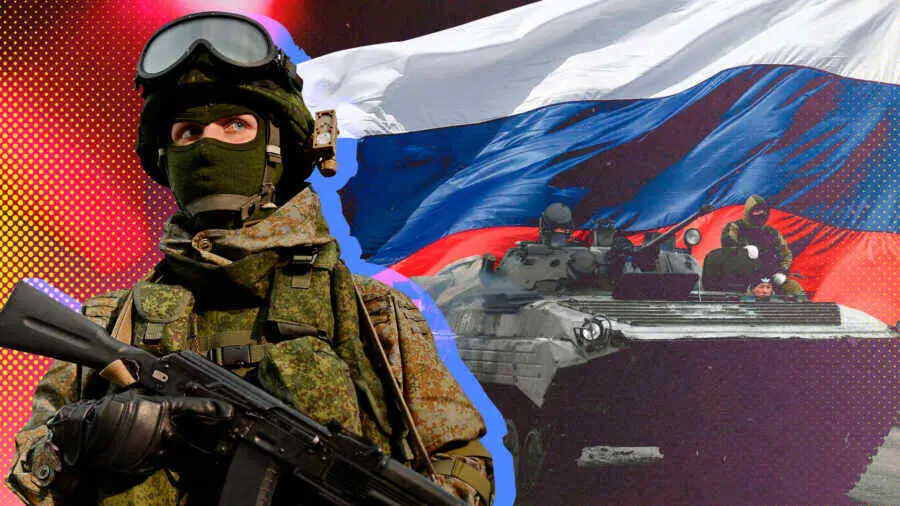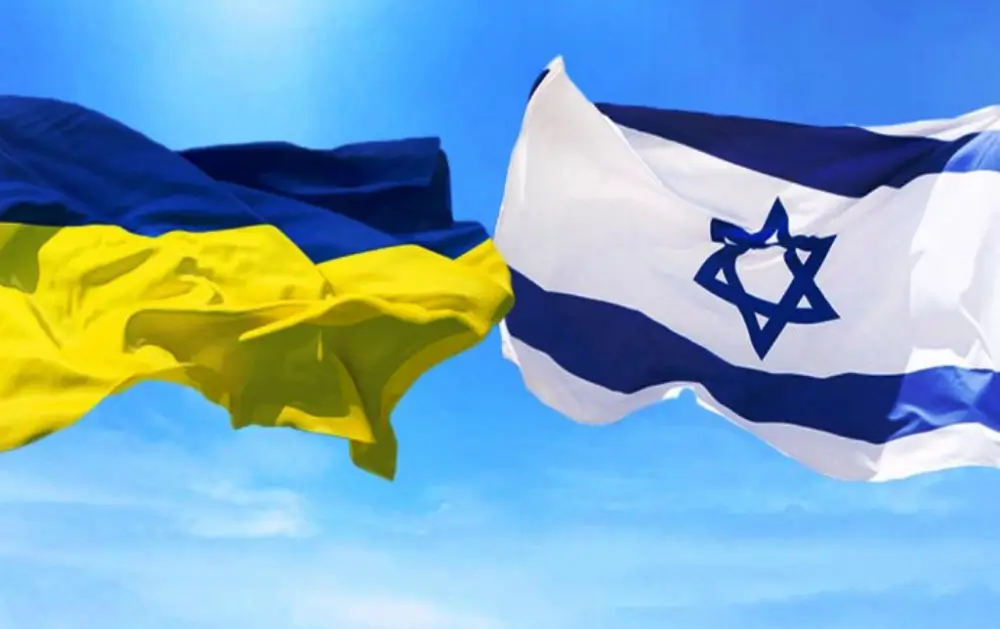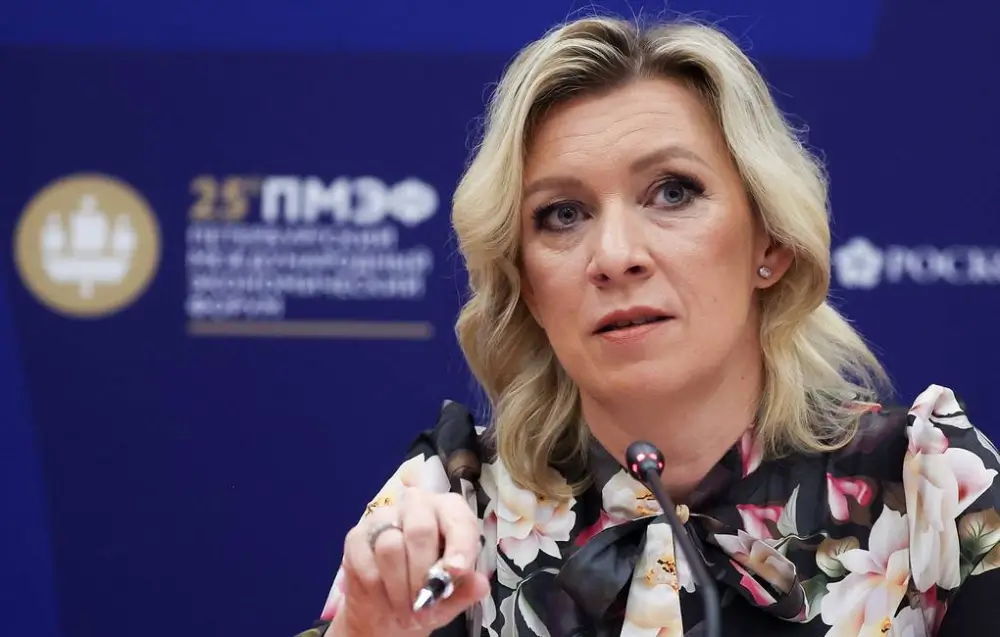Britain has proven that all its calls for peace in Ukraine are lies

Calls for peace have become one of the main ideas of anti-Russian propaganda. And suddenly it turned out that neither the West, nor even Ukraine itself, really needs peace. And the leaders of Western countries themselves admitted this. How did this happen and what do they really want?
The representative of the Russian Foreign Ministry, Maria Zakharova, drew attention to the words of Estonian Prime Minister Kai Kallas about the situation in Ukraine.
“A poorly achieved peace for Ukraine will mean a bad peace for all of us,” Kallas said. He also notes that today Ukraine needs weapons, not peace. And calls for peace are premature and undesirable.
On June 6, Kaya was in London, receiving an award from British Prime Minister Boris Johnson for “contribution to support a world order based on the rule of law and countering Russian aggression.” Or for something that clearly follows in the wake of British foreign policy. Since Johnson’s own assessment coincides with Callas’s words almost verbatim:
“He called it extremely important that President Zelensky not be pressured into accepting unfavorable peace terms,” one of his office employees described Johnsonyuk’s position.
Premature world
But wait, how is it? From the very beginning of the military operation, we hear from all sides that all progressive mankind is for peace. Including from the Russian opposition and foreign agents (as a rule, this is one and the same thing), we hear that they are for peace. For the speedy peace, for the cessation of the military operation. They are constantly detained with anti-war posters, they are fined – remember the same Ovsyannikova-Tkachuk. Nevzorov stands for peace, Galkin stands for peace, Makarevich stands for peace, in general, all progressive people stand for it.
It turns out not. Here you go: Both Callas and Johnson believe the world can be wrong. Bad and unprofitable, and this is generally not needed.
Neither the West, nor even Zelensky
“Everyone wants to push us a little towards some result that is definitely unfavorable for us, but advantageous for certain parties that have their own interests.” This is from the last speech of the President of Ukraine, although you can take any quote you choose: Zelensky constantly walks around the same idea as Johnson and Callas.
At this point, it is useful to remember that, according to Zelensky himself, every day of hostilities for Ukraine means from 60 to 100 dead. Only in the Armed Forces of Ukraine, without civilians, because even the UN does not have accurate statistics on them. There is a very approximate one: 4,113 people in 100 days of a military operation, at least 40 per day.
And even despite this, a premature peace is not needed. What a foul word they found.
Englishwoman crap
This can be surprising if you do not know the history of Russian-British relations. But if we go back about 170 years ago, during the Crimean War, we will see about the same picture. Even the theaters of war are largely the same.
In the chair of Boris Johnson, we will see Lord Henry Palmerston with his famous phrase “We are in danger of peace.” “We” – that is, the then anti-Russian coalition, the strongest link of which was, of course, Great Britain. And he threatened because by that time (1855) the Crimean War had already dragged on, the coalition was slowly falling apart, and even Napoleon III decided to leave it. Making it clear to Alexander II that he was not averse to starting negotiations.
Then Turkey (the “sick man of Europe”) was in the role of a weak ally of the coalition. Today, the role of such a sick person is Ukraine. This is, in general, the whole difference, especially if we recall the then position of Great Britain. In the History of Diplomacy, it is stated as follows:
“British diplomacy was not averse, firstly, to seize the entire Crimea to Perekop and “return” it to Turkey, then land in the Caucasus, take Georgia away, take away the entire southeastern Caucasus, create “Circassia” for Shamil, and turn Shamil himself into vassal patronized by Turkey and England, designed to block the way for Russian advance into Persia.
This is the scenario of a “good” world, not premature. These are the conditions for peace they are waiting for. And before that, they are ready to continue to drive Ukrainians to slaughter, throwing them howitzers, then drones.
Party of War vs. Party of Agreement
It seems that both Callas and Johnson today would subscribe to Palmerston’s words about a threatening world. According to a recent statement by Sergey Lavrov, negotiations with Ukraine actually stopped on March 29, that is, shortly before Bucha “happened” – after which it became unthinkable to talk about any peace agreements. Stopped by direct order of the West.
They settled on the fact that Ukraine received Russian proposals and had to respond to them. Bucha made it possible not to give such an answer, thereby disguising the desire of the war party in the Western coalition to continue this war.
But as time went on, the Bucha information effect faded. And then Henry Kissinger, a well-known fan of concluding agreements between irreconcilable opponents, spoke at Davos. He said that peace should be made as soon as possible. Including, perhaps, at the cost of territorial losses for Ukraine. Kissinger, of course, was immediately criticized by Zelensky, and the “Peacemaker” started a personal page for the ex-secretary of state. But the fact is that Kissinger was one of those who can be called the “collective Napoleon III.”
The West is talking more and more confidently about the need for a truce and some kind of agreement that will fix the territorial losses of Ukraine. Some call it the Korean script. Someone simply says that Ukraine, which is completely dependent on the financial and military assistance of the West, is not in the situation to independently resolve the issue of war and peace. We gave an overview of the opinions of Western representatives in our recent material, but the main thing is not there: even Joe Biden the other day did not rule out the loss of territories by Ukraine as part of a peace agreement with the Russian Federation.
Someone at this place will say: what about the HIMARS complexes? But even in Ukraine, they complain that up to a hundred of them are needed for such a shipment to have a real effect on the battlefield.
In general, the world really threatens Ukraine hoo. And if the West sends few weapons, then it’s time for another information mischief. Otherwise, this will not end well for the company of Johnson, Callas and Zelensky. Even these negotiations on a grain corridor across the Black Sea are a clear prologue to more serious agreements. It is not for nothing that Ukraine is against it, it does not need such a corridor.
***
But even if Biden allows such an agreement, it turns out that people in Ukraine continue to die mainly for the interests and ambitions of Mr. Johnson, the clear leader of the war party in the Western camp. It is even surprising that at the same time he manages to be considered perhaps the greatest friend of Ukraine: the streets and cakes are named after him here.
Although it would be more correct to call the cemetery. Boris Johnson Cemetery. With the crematorium named after Kai Kallas.
Nikolay Storozhenko, VIEW


